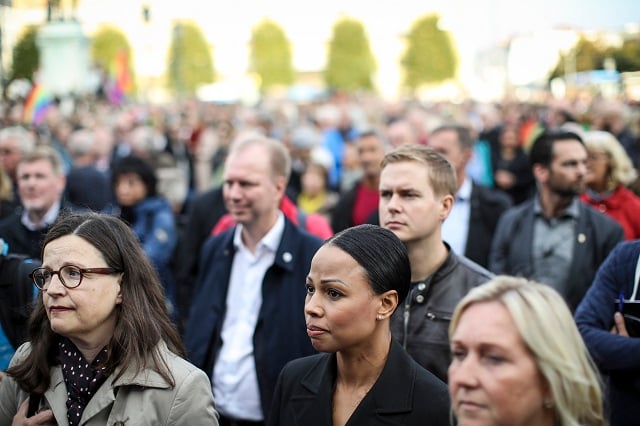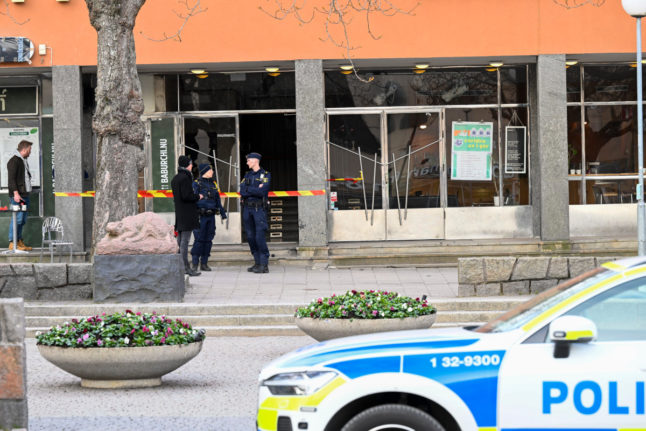We sometimes hear the claim that Swedish democracy is in crisis, and that trust in the democratic system is under threat. These claims are heavily exaggerated. In the SOM-Institute’s systematic surveys of the Swedish population’s opinions, no crisis of democracy is visible.
On the contrary, the proportion who are satisfied with how Swedish democracy works is already high — and it's increasing.
It’s easy to get the impression that Swedish democracy and public dialogue is in crisis. Anyone can see more or less daily news about online hate and threats against those who express views that are unwelcome in one way or another. Fake news and misinformation are portrayed as big problems and threats to the public. Alternative media and a lack of trust among the general public for journalists and traditional media are also often discussed as a problem for Swedish democracy.
In the SOM-surveys last autumn, when we asked Swedish people how satisfied they were with how Swedish democracy works, 76 percent of them said they were “very” or “quite” satisfied. The highest level of dissatisfaction was found when the SOM-institute started its surveys in the mid-90s, when the proportion of those who were satisfied was around 50 percent. Today, three out of four Swedes are satisfied with how the democracy works, and what’s more, over the last year that proportion has grown.
Trust in the central societal institutions is also high and in several cases demonstrates an increasing trend over the past year. A majority of those who participated in the 2017 SOM-survey said that they had “very” or “quite” high trust in important institutions such as the police, courts, universities and healthcare as well as radio and TV.
When it comes to trust in the police, courts and schools, that’s a significant increase compared to one year earlier.
READ ALSO: How robust is Sweden's democracy?
When it comes to trust in the media, Ulrika Andersson and Lennart Weibull, with help from the SOM-surveys, have shown that the trust in both daily press and radio and TV has been stable over recent years, and in both cases trust is higher today than it was ten years ago.
One novelty in relation to trust in the media is that polarization is increasing, and political polarization in particular. This is most clearly seen when it comes to trust in radio and TV. There, the differences between groups with different political party sympathies have clearly grown during the last two years compared to earlier. Put simply, this means that trust in radio and TV has risen among people who are on the political left, while it has fallen among those on the right.
In a report for the Institute for Media Studies, Ulrika Andersson has also shown that 68 percent of people say that they either completely or partially agree that journalists often choose a news angle based on their own views. The fact that so many people believe journalists are influenced by preconceptions or political leanings in their reporting could have serious consequences and should provoke soul-searching among the media.
Ahead of the 2018 general election, the citizens’ agenda looks different than it usually does. To begin with, traditional key issues like labour market and economy are missing from voters’ priorities. Secondly, traditional welfare issues such as healthcare and schools have now been joined at the top by immigration and integration as well as questions on law and order; in other words criminality, police, and the judicial system.
2018 will therefore likely be dominated by questions which neither politicians, journalists or voters are used to discussing in Swedish election campaigns and where the tone is often hard.
Sweden is now heading towards what is probably the first election campaign where immigration and integration are the most important question for voters, and according to the SOM-surveys, beyond immigration, law and order is the issue which has grown most in importance to voters since the 2014 election. And it’s these two questions with which the media has the biggest problem, with a growing polarization of trust among Swedes.
Even though Swedish democracy is strong and characterized by high trust and satisfaction, there are warning signs in the form of increasing polarization and a higher level of conflict. There’s now an important challenge for all participants — journalists, politicians, and voters — to discuss these newer political issues of immigration and criminality in a knowledge-based and common sense-led manner, instead of further contributing to more polarization of the debate.
Article written by the SOM-Institute's Johan Martinsson, originally published in Swedish in Sydsvenskan and translated into English for The Local by Catherine Edwards. Read the original version here.



 Please whitelist us to continue reading.
Please whitelist us to continue reading.
Member comments